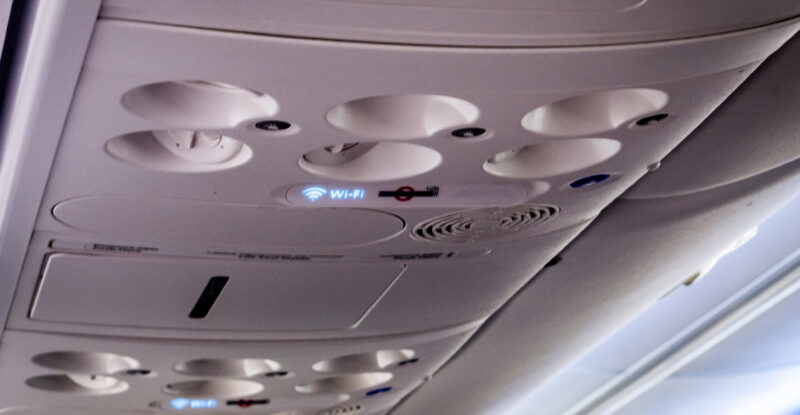The US Federal Communications Commission has given Intelsat the green light to support inflight connectivity on “U.S. flagged aircraft outside of the United States and its territories” as powered by a cluster of alternative satellites, following the in-orbit breakup of the Intelsat 33e satellite covering Europe, Africa and parts of the Asia-Pacific region.
In notices published on 30 October (PDF), the FCC grants special temporary authorities to Intelsat beginning on 25 October and running through 23 November.
Specifically, one STA allows Intelsat “to operate 1,000 AeroSat HR6400 and 1,000 ThinKom 2Ku Earth Station Aboard Aircraft (ESAA) terminals in U.S. flagged aircraft outside the United States and its territories, limited to ITU Regions 1 and 3” — i.e. Europe, Africa, parts of the Middle East and Asia — to communicate with the SES Astra 3B satellite, as well as the “NSS-12 satellite, [Indian ISRO] GSAT-14 satellite, and AMOS-17…”
A second STA (outlined in the same notice) enables Intelsat to use alternative satellites to provide IFC service for Rantec (apparently defense), TECOM (multi-use) and Astronics AeroSat tail-mount IFC terminal installs, which support the business aviation market.
Delta, which is migrating to Viasat Ka, still carries both ThinKom Ku3030-based 2Ku and traditional AeroSat (gimbaled antenna) Ku IFC on some international routes and it appears the FCC’s clearance addresses those birds.
However, some Delta customers on social media have reported they’ve been informed that Wi-Fi is not available on certain international flights. The carrier is declining to comment on the impact to its IFC of the IS-33e breakup, telling RGN today: “We don’t have anything additional to add.”
Air France is among the carriers whose Intelsat 2Ku-based inflight connectivity is impacted. “We can confirm that Air France is indeed impacted by the issue affecting Intelsat’s network. We are in contact with Intelsat’s teams, who are currently assessing the situation and evaluating [the] mitigations plan,” an Air France spokesperson said on 21 October.
Air France’s other IFC providers, Anuvu and Panasonic Avionics, said their IFC services for the carrier are unaffected by this unfortunate event, as they were not using IS-33e capacity.
Air France will start fitting its aircraft with Starlink in summer 2025, a choice made before the IS-33e breakup.
Meanwhile, SES is in line to acquire Intelsat and both are eager to see the deal approved, having filed applications seeking approval to transfer control to SES of the licenses and authorizations held by Intelsat and its subsidiaries.
Related Articles:
- Intelsat 33e GEO satellite suffers major anomaly
- SES embraces more visible role in IFC, advances Open Orbits
- Delta now eyeing mid-late 2025 for free Wi-Fi on transpacific routes
Featured image credited to istock.com/Herbert Pictures












